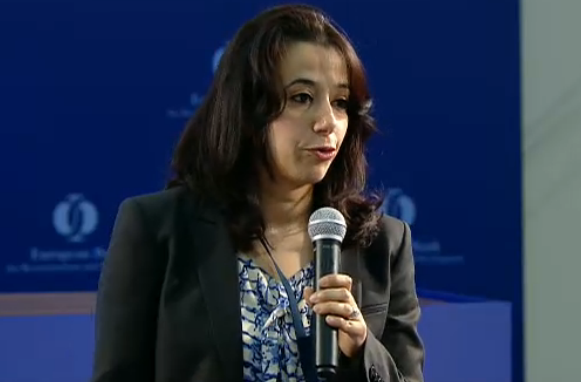Communicating Africa forward: a private sector imperative By Nkiru Balonwu
Africa has shown strong shoots of economic growth in the new millennium, but its reputation remains rooted in the last century. The global media prefers to hone in on negative stories about the continent, and there are not enough positive ones coming through from our own businesses to counteract this bias. If Africa is to revamp its image, increase the GDP of its individual nations, and transform its trajectory, it cannot rely on government organisations and think tanks alone. The private sector needs to step-up and play its part in better communicating African business success.

In Nigeria, we are acutely aware of the negative reputation that surrounds our business sector. In August 2019, the FBI arrested and indicted almost 80 Nigerians – in what it described as one of the largest cases of online fraud in US history. A CNN opinion piece at the time wrote that “Previously, Nigerian criminality existed in the popular imagination somewhere between mildly serious and an internet joke.” More recently, that sentiment was invoked again, when so called Nigerian ‘social media influencer’ Ramon ‘Hushpuppi’ Abbas was accused by the FBI of money laundering.
Read also:Rwanda to Host MWC Africa 2021
While the rest of Africa may not be as strongly affiliated with the emails of Nigerian princes that arrive into western inboxes, it is fair to say the continent at large still struggles in the global popularity contest.
Of course there are many reasons for this. Longstanding economic patterns, historic prejudices, and the very real presence of business malpractice wherever in the world this behaviour is allowed to go unregulated and unchecked, all play their parts. But it is in the way that we communicate our qualities, and the wider narratives we tell, that African businesses and brands can themselves have a positive impact on the future economic prosperity of the continent at large.
When we think about the US, we are to this day met with visions of economic freedom and the American dream, even if we are all too aware of some of the serious issues that the country now faces. The nation’s flag has become a brand in itself that seems to rubber-stamp all of the heroic literature that emanates from beneath. From Hollywood, to companies like Apple and Nike, celebrities like Michael Jordan, Beyonce, and the Kardashians, politicians like Obama and even Trump, America continues to shine out to many as a beacon of positivity, precisely because of its diversity and soft power.
Read also:SimpliConnect Vows to Change Internet Experience in South Africa
The effectiveness of soft power is a notion that Africa – and African culture more globally – has been awakening itself to in more recent years. One of the reasons that Black Panther was so successful is that the image of ‘Wakanda’ resonated with millions of black people around the world. It was a story told for us, by us (a black director), and it also helped to bring a new perspective to non-black people along the way.
Festivals like the Ake Arts and Book festival, Lagos Photo and ART X Lagos have helped to put Nigeria on the bucket list of art lovers around the world, with many also keen to experience the legendary nightlife and famed hustle and bustle that is Lagos. In the music sector, superstars like Burna Boy, WizKid and Davido have taken the world by storm, and done more for the country’s reputation than any political leader in recent memory.
Across the wider continent, recognisable business figures like Mo Ibrahim, Tony Elumelu and Dangote, as well as sports stars like Siya Kolisi – South Africa’s first black rugby Captain – have done more to sell Africa than most African governments combined.
From outside of Africa too, we see business personalities like Jack Ma, Jack Dorsey, and previously Mark Zuckerberg, visiting the continent. Entrepreneurs such as these understand the importance of soft power, and recognise the value-exchange to be had in affiliating their brands with emerging and still largely unexplored new markets.
But more of this kind of work is required, particularly from within Africa itself. Music, art, film, fashion, and increasingly the entrepreneurial creativity of business are unified by a common theme: their ability to powerfully communicate, and engage people through narrative.
When it comes to influencing trends at macro level, individual businesses can only do so much. Government institutions must also learn from these techniques. Engaging through narrative is not solely for the private sector, and the state still has an important part to play. We see this approach taking shape in its most basic of forms, through the TV ads being run around the world by different governments – Malaysia, Japan, US, UK, etc. that tout the many reasons to come and visit their countries. But beyond this, governments have the duty to lay the legal and infrastructural framework to enable businesses succeeds. Especially in an age of Covid, when national lockdowns have wreaked social and economic havoc on communities at large, this type of government intervention becomes more important than ever before.
Read also:Egyptian Fintech Startup Flick Secures $1M In Pre-Seed Funding Round
History Professor Margaret O’Mara states in a Washington Post interview about her 2019 book ‘The Code: Silicon Valley and the Remaking of America’, that “something most people don’t realize is how the federal government played a key role in building Silicon Valley. There were tax breaks and research projects and regulatory fixes, fiercely lobbied for by tech entrepreneurs and investors from the 1970s forward, that accelerated the rate of investment and wealth creation in the Valley.”
By actively engaging with businesses and entrepreneurs, and then taking practical steps to help sell the idea and facilitate the reality of African business growth, governments can undoubtedly play their part in communicating Africa forward.
In a recent interview Nikolay Malyarov, CEO of PressReader International, a Canadian-headquartered digital media company, spoke about the allure of Ireland in seeking a new territory from which to expand international business:
“We’d been courted by a number of countries. There are a number of these foreign entities that are looking for FDI, bringing foreign companies into their markets. Ireland was one of them. It’s the Irish Development Agency (IDA), which is well known around the world for bringing quality companies into Ireland to set-up their European operations. That process had started before Brexit, so I can’t really say that Brexit had anything to do with our decision to go into Ireland. But I have to say that the Irish Development Agency really showcased what Ireland is all about.”
“Ireland is about quality workforce, multilingual, diverse – certainly not just the Irish workforce, but you have access to pretty much anyone from the European Union. It’s also a very creative workforce. Ireland has obviously gone through a number of changes as a country, has developed, has had its own set of challenges back in 2008-09, but the talent that it attracts is great to tap into.”
Malayarov’s comments highlight the importance of the political and economic establishment working in tandem with a strong private sector. In taking the decision to make this location its new home, the company considered not only the official literature of the IDA, but also the wider benefits of the country, particularly in terms of the quality, diversity, and creativity of its workforce.
In order to do this, the business, finance, and even governmental sectors must first stop looking down on the creative industries. There is another educational job to be done here too, in helping them to understand how the various creative sector businesses actually work, rather than simply paying lip service to these endeavours.
More broadly, by communicating the realities of African business life, and the success stories that we are creating on a daily basis, we can hope to win the hearts and minds of the international business community. Greater dialogue ultimately leads to greater collaboration and more frictionless trade, which in a global economy adds to the economic prosperity of us all.
Nkiru Balonwu is Chair, African Women On Board (AWB), Managing Partner, RDF & Convener, The Africa Soft Power Project
Kelechi Deca

Kelechi Deca has over two decades of media experience, he has traveled to over 77 countries reporting on multilateral development institutions, international business, trade, travels, culture, and diplomacy. He is also a petrol head with in-depth knowledge of automobiles and the auto industry




